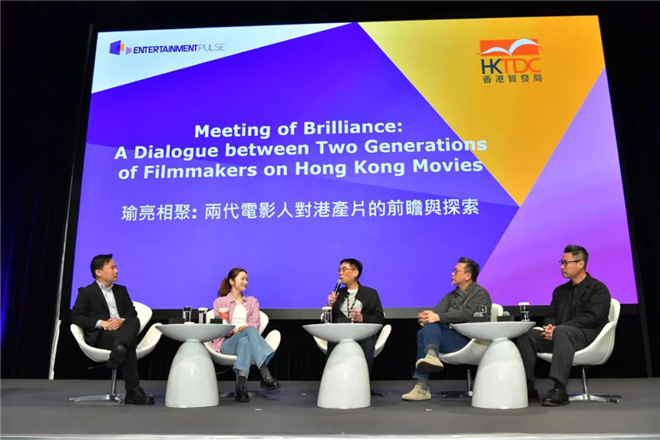
Special feature of 1905 film network "Many people say that Hong Kong films are dying, and movies are longer than our lives. If I die, movies will not die, and so will Hong Kong movies. If this road doesn’t work, find a new one. "
A few days ago, at the 28th Hong Kong International Film and Television Exhibition, the director talked about his views on the future development of Hong Kong-made films.
The forum invited producer and director Zhu Ziyan, producer Zheng Baorui, director and two generations of filmmakers to share their experiences through dialogue.
The future of Hong Kong films lies in a new generation of directors. In recent years, many talented new directors have emerged, which has set off a new wave of Hong Kong films. The Eighth Suspect, directed by Jonathan Li, won three nominations, including the best new director in the 42nd Hong Kong Film Awards, and the best director and the film recommended by the Hong Kong Film Critics Association of the year. Zhu Ziyan’s first director film "I wish people a long time" also won four nominations, including the best new director in the Academy Award.
Guan Jinpeng and Zheng Baorui also brought the latest news of directing new films at this film and television exhibition. Guan Jinpeng’s Women on the Verge is scheduled to be released in the mainland in May this year. His next film will focus on the theme of dementia and tell the story of forgetting love. Zheng Baorui is making action movies in full swing.
Through the dialogue between two generations of filmmakers, and the interview with 1905 Film Network by Guan Jinpeng and Zhu Ziyan, what opportunities and challenges are faced by the new Hong Kong director? When the new generation of film meets the old industry, what sparks will it spark and how to bring about the real revival of Hong Kong films?
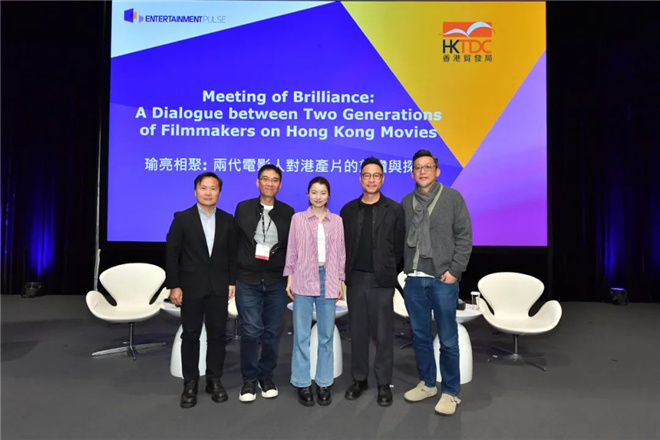
From generation to generation, from new director to producer.
"We were born as deputy directors, and we have a nickname called Red Pants. We grew up with Master, and Hong Kong filmmakers have this spirit of inheritance."
Before directing his first film, Guan Jinpeng had accumulated a lot of experience in the film and television industry, from being an assistant reporter and assistant director in a wireless TV station to following them to make films and become an assistant director, and participated in and witnessed the rise of the new wave of Hong Kong films in the 1980s.
Guan Jinpeng’s ability to produce internationally acclaimed works is inseparable from the training of a group of directors of the new wave. "They didn’t teach me how to make a movie, but seeing their serious attitude, guiding the actors as directors on the spot, and how to communicate with photographers, every day is a lesson."
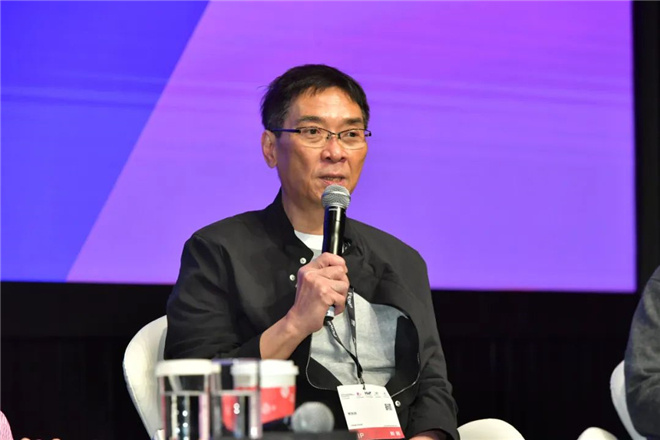
So is Zheng Baorui. At the age of 19, he joined the field service, followed and served as the deputy director. At the beginning of 2000, when Hong Kong films were in the most difficult depression, he had the opportunity to be a director as a young man, but none of the films were successful.
After filming "Terrorist Hotline", he thought that he still had many shortcomings as a director. He heard that Yinhe Image wanted an assistant director, so he went for an interview. The first assistant director film was. Zheng Baorui said, "At that time, I watched how the director shot at the scene, and found that the original director should do this and read the same script, but the director had the ability to change magic. It turned out that being a director was like this."
Now, Zheng Baorui, who has taken the lead, has started to be the producer of the new director. Jonathan Li said that when he wrote "The Eighth Suspect", he would always look for Zheng Baorui when he encountered a bottleneck. "He will grasp the general direction, and the screenwriter and I will try in this direction."
In Zheng Baorui’s view, the decision-making power of the film lies with the director, and the producer is a reminder. "Remind him that he must proceed from the director’s position and try to keep the desired version when editing. I will defend the director and don’t want him to have regrets."
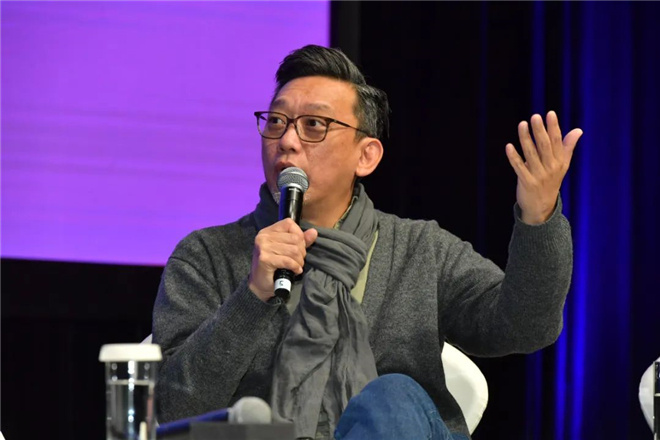
By the end of "I wish people a long life", Guan Jinpeng has worked as a producer for more than ten works directed by younger generations. He has also been teaching at the City University of Hong Kong for five years and spared no effort to promote and train the next generation of creators.
He believes that the producer should not point at the directors, but rather remind them of what they have not noticed. During the filming of "I wish people a long time", Guan Jinpeng would look through the scenes to be filmed the day before filming. "I’m used to splitting the scene when I see the script, but after I split the scene, I won’t take my lens and tell the director that I should shoot like this."
When I first met Zhu Ziyan, I didn’t expect that Guan Jinpeng had read her script and constantly recommended it to the industry. Later, she found help editing it. On the first day of shooting and some heavy dramas, Guan Dao will also be on the scene.
"Because I am not familiar with the staff of many departments, they will bully the new director more or less, but as long as they are in charge, everyone’s cohesiveness and seriousness will be different. I remember that on the fourth day of filming, Guan Dao invited a senior producer who had worked with him for a long time to accompany me at the scene. Before that day, people in some departments didn’t know that I was a director. After that day, their attitude towards me was completely different. "
Zhu Ziyan said, "Guan Dao uses his own way to protect a new director. Making a movie is really a exhausting process. His sentence is well shot, which gives me great motivation to continue shooting. "

Guan Jinpeng and Zheng Baorui are not the only producers. Last year, they produced two explosive films with new directors. The SAR Government of China also launched the "Pass on the Fire from Generation to Generation Program", in which qualified directors were invited as producers to escort the new directors to start shooting local films in Hong Kong. The amount of funding for each film was about 9 million yuan. The directors who participated in the first round of planning are,,,, and so on.
From generation to generation, a stick is passed on, and only in this way can Hong Kong films be endless and endless.
The first part is the admission ticket, and the second part is the real skill.
"In the 1980s, the new wave of Hong Kong films had the resources of film companies such as Shaw, Jiahe, Debao and New Art City. At that time, the investment was much better than today. When Hong Kong films really blossomed, every director tried his best to shoot genre films to the extreme. Now many new directors are funded by government subsidies, so they have to work harder. "
As Guan Jinpeng said, in the heyday of Hong Kong’s film development, new directors did not need government funding, but now they need to participate in various projects and stand out from the crowd in order to get funds to make their first film.
In recent years, the new local directors in Hong Kong mainly come from the "First Drama Film Project" and "Film Production Financing Plan" supported by the Hong Kong Film Development Council.
The "First Plot Film Project" was funded by the Film Development Fund to support the winning new director and his film production team to shoot his first plot film. "I wish people a long time" was the winning work of the sixth "First Plot Film Project", which was funded by 5 million yuan and completed at this cost.
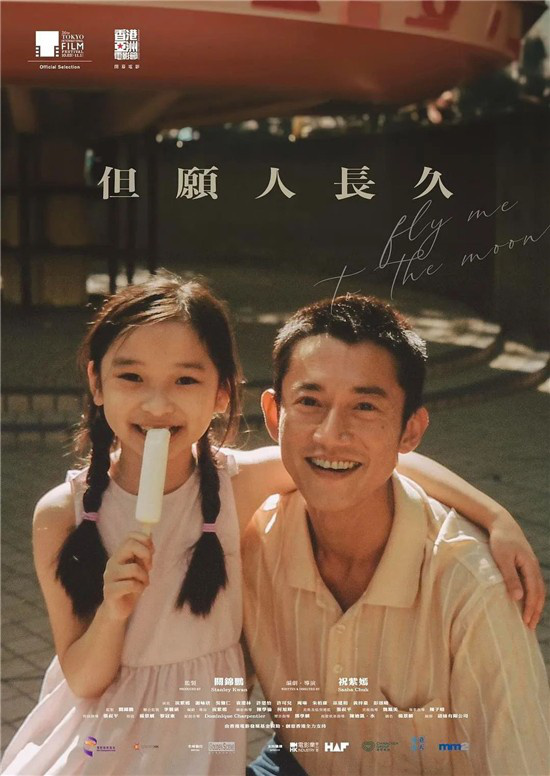
From then on, there are new directors who plan to come out, such as,,, Diary of a Young Man, and so on. Their first works all shine in the film industry.
The "film production financing plan" provides government financing for film production with medium and small production budgets, and the winning works can get about half of the investment budget. Unlike the "first drama film plan", it is limited to government financing and can allow other commercial financing channels. For example, the first director film was born with the support of this plan.
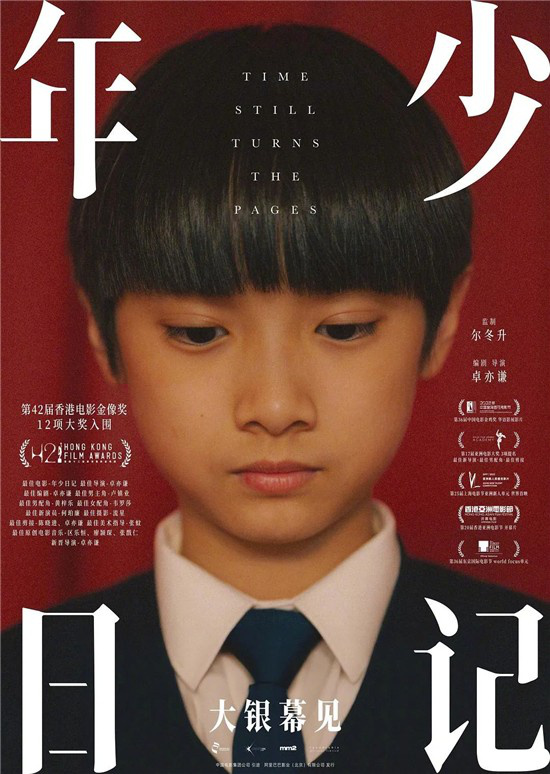
Talking about the differences between the directors of the new wave of Hong Kong films in the 1980s, such as Xu Anhua and others, and the current batch of new directors, Guan Jinpeng thinks that "the stories that the directors of the new wave of that era want to shoot will be handled by genre films to some extent, and they don’t want to make the boss lose money, but also want the audience to like them. Now young directors pay more attention to personal feelings and simply shoot stories that they feel. "
Some new directors became an instant hit because of the first film, but the second film didn’t follow. For example, Chun Wong, who was highly anticipated by the Hong Kong film industry, hasn’t directed a new film for eight years after Ignorance.
"Guan Dao reminded me from the beginning that you should also think about the second one when you shoot the first one. Because the first part is an admission ticket, let everyone know that you can make a movie, and the second part can see whether your real skills are good or not. " Zhu Ziyan said.
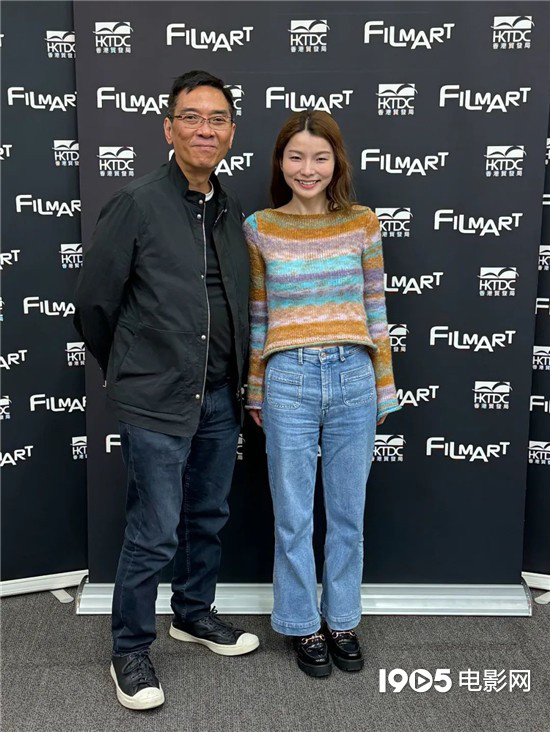 Source: 1905 Movie Network
Source: 1905 Movie Network
Zhu Ziyan has devoted himself to writing the script of the second film "Calm under the Sun", which won the investment cooperation of the film company.
"I have more autonomy in the first part. I don’t have to pay back the government funding, but I can’t always take the government’s money. The second part has investors, and I will continue to learn how to stick to my expression in business and industry, so that there will be the second and third parts. Just like Guan Dao’s "Rouge Kou" is a literary film, and it is also a commercial hit. "
I wish people a long time "is a semi-autobiographical film written, directed and performed by Zhu Ziyan. Many directors of the new generation in Hong Kong, with their personal tastes and extremely limited funds, make more films of this kind that are literary and not very genre-oriented. Although this doesn’t mean that it can’t be sold, for example, Young Diary earned HK$ 26.24 million at the local cinema in Hong Kong and HK$ 21.43 million at the box office under the sun, ranking second and third in the box office of Hong Kong films in 2023, respectively, but how to continue to get investment, shoot more works and extend the life of directors’ creation is a problem they must face.
However, regarding the movie business, what is the market, and what is popular now, Zhu Ziyan admits that she doesn’t know either. "What I know is that I have to go through my own level before I can take it out."
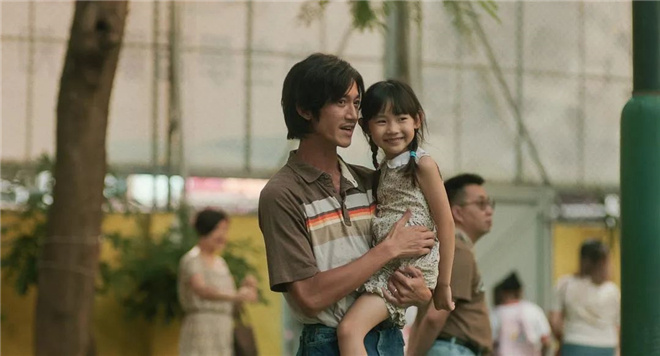
Go out and make movies in different places.
There is still a path like Jonathan Li’s for the new Hong Kong local director to come out successfully — — He accumulated experience in different positions in the film industry for several years, and gradually became a director from internal promotion, continuing the traditional training system of "mentoring" in the Hong Kong film industry in the past.
Jonathan Li, 45, has been in the business for more than 20 years. He first followed Tung shing Yee and later became the deputy director of Zheng Baorui. Jonathan Li said that he learned a lot of experience in filming around Zheng Baorui. "After filming a scene in the morning, the director felt that it was not possible at noon, and the same scene was remake all afternoon. He soon knew where the problem was and the scene was very infectious."
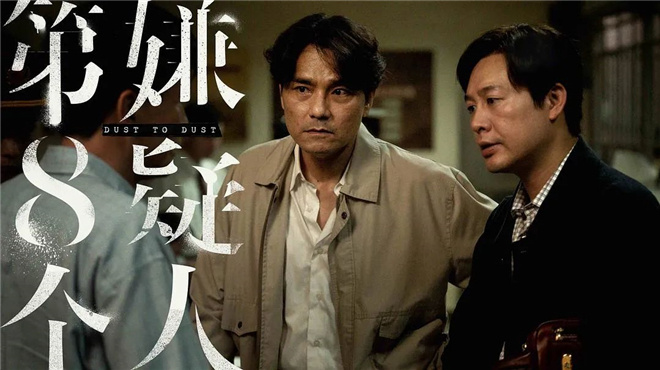
These new directors, who are studying with their predecessors, are not young when they can make films independently, but they bear the burden of the future development of classic films made in Hong Kong, such as police and bandits’ criminal actions. For example, directors, directors, directors, etc. in these years.
At this year’s Hong Kong International Film and Television Exhibition, you can also see the director’s Broken Region, the director’s Desperate Saburo, the director’s Retired Life of Undercover, and the director, all of which have worked behind the scenes for many years and made new films after becoming directors.
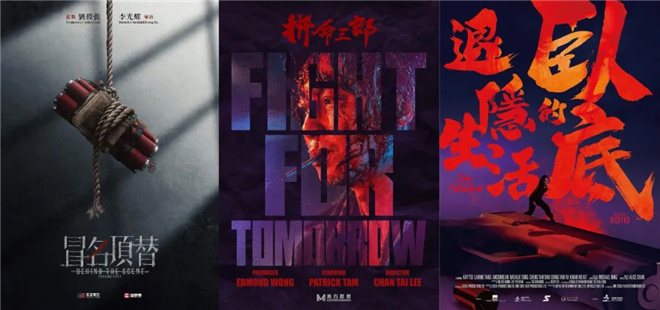
Jonathan Li also followed the wave of co-productions of great directors going north. The Eighth Suspect was filmed by a Hong Kong production team in Guangdong and Yunnan.
Zheng Baorui encourages this practice very much. "Apart from producing local stories and Hong Kong directors, Hong Kong films can also go to different places to make films, as long as they respect the local culture and reality and don’t bring the flavor of Hong Kong into it."
Jonathan Li’s next film is to shoot in Malaysia, which is the first film produced by Tianxia Film Company after it set up a branch in Malaysia. Zhu Ziyan’s second film will be filmed in the mainland. "I don’t want the film directed by the new Hong Kong director to be just a small circle."
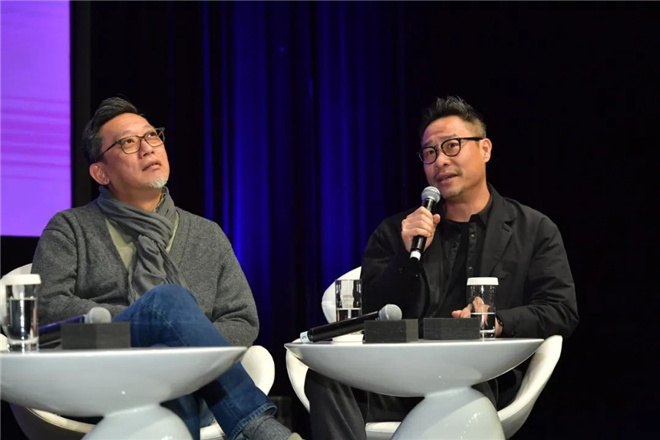
At present, Hong Kong’s new director’s films still lack wider international communication and popularity. Guan Jinpeng hopes that "the government and senior filmmakers can promote high-quality films to the international market through different channels and attract more people to pay attention to the new directors, so as to encourage the rookie to continue to work hard."
Hong Kong films need fresh blood to take over the baton. At present, this wave of new directors has swept through, and it is up to them to revitalize Hong Kong films in the future.
关于作者